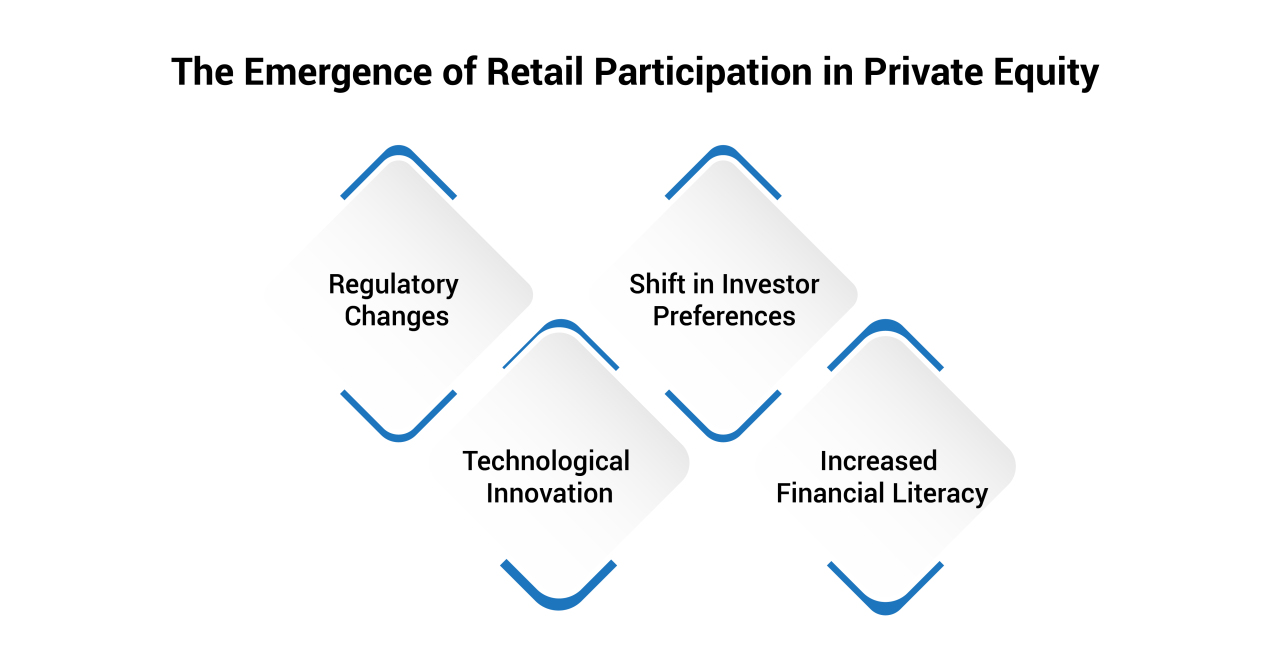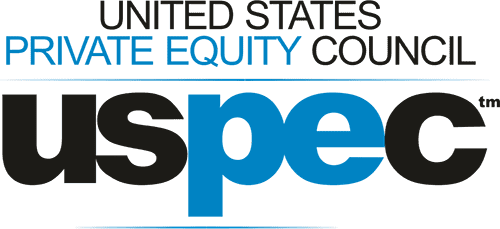Introduction
Breaking traditional barriers, the rise of private equity for retail investors is making a lucrative asset class more accessible to more people. New technological advancements, new regulations, and new fund structures now make participation possible for retail investors. This new era marks the rise of private equity for retail investors and the rise of an entirely new type of access to alternative investments with no stocks or bonds required that promises portfolio diversification and growth.
Private Equity and Its Traditional Barriers
Private equity refers to investments made in companies that are not publicly traded, typically through direct ownership or private equity funds. A private equity fund is a traditional structure of the pool of capital from institutional investors (pension funds, endowments, wealthy individuals) who can effectively commit large sums of money for a long time. These are usually funds falling at early-stage companies, buyouts, or distressed assets aiming at value enhancement and high returns over time.
However, private equity for retail investors has historically been limited due to several key barriers:
-
Long Investment Horizon: Investments in private equity are typically illiquid with a commitment of several years and which individual investors can't access in the short term.
-
Accreditation Rules: Access to private equity historically has been limited to accredited investors, and this has meant criteria such as income and net worth, which keep retail investors out.
-
Complexity and Transparency: Private equity fund structure is complex, and opaque performance metrics and limited public information regarding its involvement make it hard for individual investors to understand risks.
The Emergence of Retail Participation in Private Equity
Private markets are no longer a dream of retail participation, even if they used to be. Over the past few years, the barriers to retail investing in private equity have been eroding piecemeal, and an increasingly large audience can now participate in investment opportunities open only to institutional players. It's all driven by a cocktail of regulatory changes, technological advances, and changing investment outlays.

Key Drivers of Change:
-
Regulatory Changes: The demand for more inclusive investment opportunities has been recognized by governments and financial regulators. These reforms have opened the private equity markets— previously unavailable to the ordinary private investor— to wealthier individuals and institutions.
-
Technological Innovation: With the rise of fintech there are now fintech-enabled retail investors that can participate in private equity investments through fractional ownership, thus lowering the investment thresholds. With tokenization and creation of digital securities for private equity, it is now more liquid and tradable— opening new opportunities for small investors.
-
Shift in Investor Preferences: Retail investors are increasingly looking beyond traditional stocks and bonds in the search for higher returns. The opportunity to diversify portfolios with superior returns exists from private equity.
-
Increased Financial Literacy: Retail investors are empowered by a growing awareness of alternative investment options. With streamlining access to educational resources and private equity insights, investors will make better-educated decisions.
Factors Shaping the Rise of Retail Participation in Private Equity
Several compelling factors driving an already robust surge in retail participation within private equity markets are indicative of a shift in investor behavior and market accessibility.
-
Desire for Higher Returns: Private equity is increasingly attractive to retail investors as a way to potentially realize superior returns than long-held traditional asset classes, including stocks and bonds. This appeal arises especially in low-interest rate times when conventional investments would be underperformed.
-
Increasing Awareness of Alternative Investments: Better financial education, and media coverage, have led to a broader understanding of the benefits of private equity. More and more retail investors have come to see private equity as an opportunity to build long-term value and diversify their portfolios.
-
Advancements in Technology: Tokenization and fractional ownership have made the entry to private equity grater easier and opened the doors for retail investors in opportunities, which were only for the institutional players.
-
Demand for Portfolio Diversification: Retail investors can add alternative asset classes that reduce risk through diversification and capture the growth potential of unlisted companies using private equity.
Taken together, these factors represent a significant transformation of the private markets, i.e., closing this gap between institutional-level opportunities and each investor. But as retail participation blossoms, private equity is increasingly a key form of modern investment.
Private Equity Fund Structures Tailored for Retail Investors
The private equity landscape has evolved and has had new fund structures that cater to retail investors. Accessible yet complex, these structures seek to balance private market investment with access to locate tailored solutions to suit the specific needs of individual participants.
Key Elements of Private Equity Fund Structures for Retail Investors:
-
Fund of Funds (FoFs): These funds collect capital from many retail investors and invest in a portfolio of private equity funds. The diversification that FoFs offer mitigates risk by exposing clients to diverse sectors and strategies through the FoFs.
-
Direct Investment Opportunities: Retail investors can participate in individual deals or projects for some funds. These options lead to higher possible returns, but much more due diligence, and they present higher risks.
-
Fractional Ownership Models: Most retail-focused funds employ fractional ownership, which means that investors contribute less to larger deals. It enables the low barrier to entry and remains in the play of high-value investments.
-
Reduced Minimum Investment Requirements: Retail-oriented funds tend to have lower thresholds than the standard private equity funds, and retail investors thus can participate.
Additional Features for Retail Focused Funds:
-
Simplified Fee Structures: These funds tend to provide management and performance fees that are streamlined with the capabilities of retail investors.
-
Transparency and Reporting: Better communication and metrics are provided to help investors understand the risks and returns associated with the business.
These structures enable access to private equity for average individual investors while allowing them to fit their financial profile and risk tolerance into the structure. These innovations continue to bridge the gap between institutional and retail participation in the democratization of private markets.
Benefits and Risk of Private Equity for Retail Investors
The private equity market is becoming more attractive to retail investors, who are looking to achieve higher returns and more portfolio diversification. But there are perils and there are benefits to these opportunities that need to be carefully considered.
Benefits:
-
Higher Return Potential: Private equity funds typically earn superior returns than traditional public investments, and this is because they have a long-term capital appreciation focus.
-
Diversification: Private equity can be included as part of the portfolio to provide alternative exposure, which has the benefit of reducing the risk of the more traditional types of investments, such as stocks and bonds.
-
Access to New Sectors: Investors can take advantage of emerging industries or growth-stage companies, especially for high-risk retail, that are often not available in public markets.
Risks:
-
Liquidity Challenges: Investments into private equity are typically accompanied by long deferral periods from when the investment takes place, and since gains cannot be realized until the investment matures, it is less liquid than publicly traded securities.
-
Complexity and Transparency: For retail investors, understanding the inner workings of the private equity fund structure can be somewhat opaque, largely due to less transparency around the performance and strategy of its operations compared to public investments.
-
Market Volatility: High returns are possible, but private equity isn’t impervious to the vagaries of the market malaise, particularly during the early years of a fund.
Conclusion
Retail investors' growing involvement marks a turning point for private markets, as technology, evolving fund structures and regulatory support have made private equity accessible beyond institutional investors. Bringing fractional ownership and tailored investment vehicles, platforms are bridging the gap for retail participants by offering them access to greater returns and diversification. Risks and complexities persist, but retail investors can better participate in informed ways, with the help of financial advisors and definitive safeguards. With this evolving trend, private equity has the potential to reshape the investment landscape for retail investors in a positive way.







